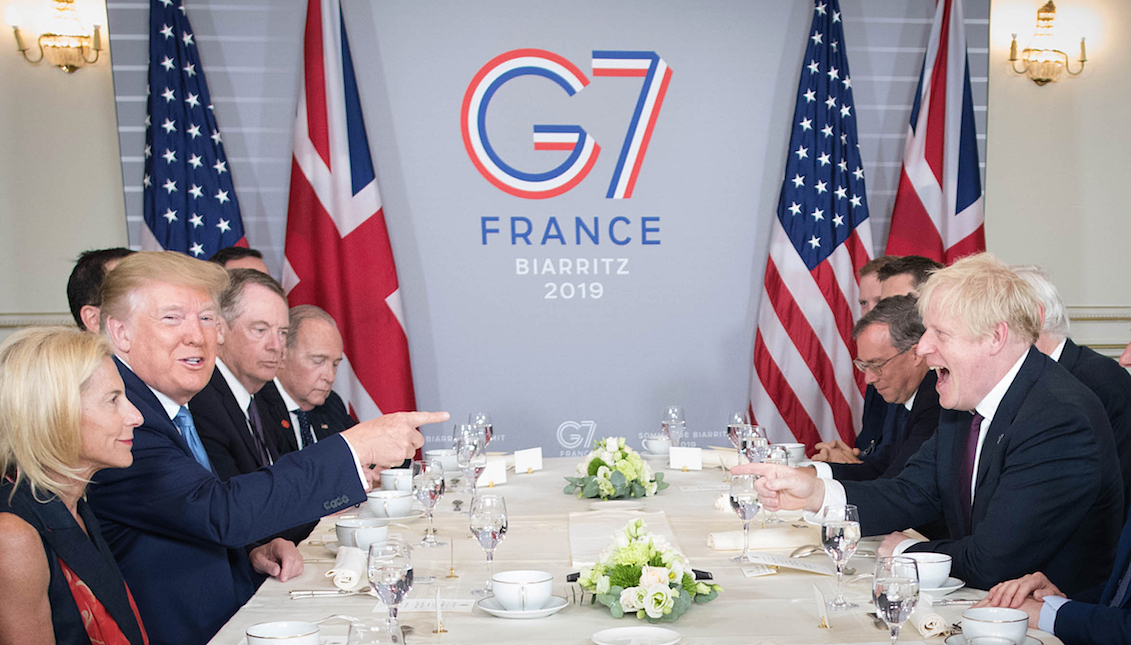
The G7 failure, still nothing on Climate Change
While the Amazon burns at a dangerous speed, the leaders of the world's largest economies fail to find a way against climate change.
Just hours after the conclusion of the annual G7 meeting, a headline stood out among the thousands of news articles about the event: leaders agreed to a $20 million package to help Brazil cope with the massive fires that threaten to destroy the Amazon.
The intergovernmental economic organization focuses its annual meetings on precisely that: economic policies. While its cooperative spirit has been promoted as a way to help impoverished countries, maintain global financial stability and exercise as an advisor for the United Nations, the results are far from apparent.
One of the most important objectives of the organization in recent years has been to reduce carbon emissions and face the catastrophic effects of climate change.
This year, the prelude to the famous meeting has been a massive fire in the world's most important natural lung, where 72,843 uncontrollable forest fires have swept everything in their path for more than three weeks.
The president of Brazil, Jair Bolsonaro, warned during his presidential campaign and first months in office that he would rescind environmental protections in the Amazon as a measure to boost the country's economic development.
In January, he finally approved an executive order that transferred the regulation and creation of indigenous reserves to the Ministry of Agriculture, “controlled by agribusiness lobby,” as explained by The Guardian.
This was his way of fulfilling the promise to give the green light to mining and agriculture in indigenous reserves.
However, the opposition of non-governmental organizations and environmental activists has been a strong enough force to bring the decision to the public sphere.
Several months later, the Amazon burns uncontrollably.
RELATED CONTENT
This strategy is not new. According to research by the Yale University School of Forestry and Environmental Studies, 80 percent of the Amazon’s deforestation rate is directly related to cattle ranching.
The research center explained how livestock and deforestation are two intimately linked issues in Brazil, which is the largest exporter of cattle in the world and supplies approximately a quarter of the world market.
“Low input cost and easy transportation in rural areas make ranching an attractive economic activity in the forest frontier; low yields and cheap land encourage expansion and deforestation,” the center explains in an article. “Approximately 450,000 square kilometers of deforested Amazon in Brazil are now in cattle pasture. Cattle ranching and soy cultivation are often linked as soy replaces cattle pasture, pushing farmers farther into the Amazon.”
This was confirmed by a series of documents leaked and published by Open Democracy, where the Bolsonaro government's project of “inhabiting the Amazon region to avoid the implementation of multilateral forest protection projects” is made evident.
Meanwhile, despite the verbal initiative of French President Emmanuel Macron to place "the climatic emergency" as the main issue at the G7 meeting this weekend, the informal nature of the organization means that none of its actions are mandatory for the Brazilian government, therefore Bolsonaro is not forced to adhere to the recommendations of any joint declaration.
In addition, the denial prevailing in the Trump Administration is an element that could prove useful to the Brazilian government when discrediting climate change and denying an emergency.
This Monday, the empty seat of the U.S. president during the most important meeting of the event on climate change went viral, as an implicit manifesto of the failure of international diplomacy when dealing with true facts.
The Arctic is on fire.
— Mark Elliott (@markmobility) August 26, 2019
The Amazon is on fire.
This is @realDonaldTrump's seat at today's #G7 meeting on climate change. pic.twitter.com/ogjvTaiTPe











LEAVE A COMMENT: